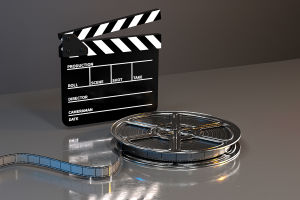Ever wondered why your heart races during horror movies—even when you know it's all fiction? You're not alone. Horror films have a unique way of hijacking our emotions, triggering primal responses that are hardwired into our brains.
But it's not just about loud noises or monsters jumping out of the dark. It's about a finely tuned psychological experience that plays with perception, biology, and expectation.
The Brain's Fear Circuit: A Direct Hit
At the core of every horror movie's power is the amygdala—the brain's fear center. When we see a terrifying scene, even knowing it's fictional, the amygdala fires off signals as if the threat were real. Our body reacts with increased heart rate, faster breathing, and even sweating. This is a survival mechanism, a leftover from when fear meant life or death.
Filmmakers use this to their advantage. They create visual and auditory cues designed to activate these primal circuits. Think of that sudden silence just before something awful happens—that's a cue your brain reads as danger. And when the scare finally hits, your whole nervous system lights up.
Sound: The Unseen Tool
Sound in horror movies is one of the most carefully engineered elements. Low-frequency noises, often barely audible, can create discomfort or unease. These sounds mimic natural warning signals—like the growl of a predator or the hum of an earthquake. High-pitched tones can induce stress or even nausea, while sudden changes in volume jolt the audience out of any sense of comfort.
A 2010 study published in The Journal of Neuroscience showed that certain frequencies are more effective at stimulating fear-related brain activity. Directors and sound designers use this research to manipulate viewers' emotional states without them even realizing it.
Uncertainty: The Fuel of Dread
Uncertainty is one of horror's most powerful tools. When you're unsure what's going to happen—or when—it creates a state of sustained anxiety. Filmmakers use long, tense shots, shadows, ambiguous sounds, and misdirection to stretch suspense to its breaking point.
This taps into what's known as "anticipatory anxiety"—a fear of the unknown. According to Dr. Steven Schlozman, a psychiatrist at Harvard Medical School, our brains are wired to fear what we can't predict. Horror movies exploit this by building tension, making the viewer feel vulnerable and out of control.
Empathy and Mirror Neurons: Why We Feel Their Fear
Humans are wired to empathize. When we see characters in distress, our mirror neurons fire—these are brain cells that simulate the experiences of others. So when a character runs through a dark forest, terrified, our bodies mimic their panic. We may grip the seat tighter or feel our pulse race, even though we're physically safe.
This empathy makes horror more immersive. The audience emotionally bonds with the character's fear, pain, or isolation. The more realistic the acting and writing, the stronger the emotional pull.
The Familiar Turned Unfamiliar: Twisting Reality
Another tactic horror uses is transforming everyday situations into nightmares. Think haunted houses, children's toys, or familiar family settings—twisted just enough to feel wrong. This creates "cognitive dissonance," a psychological discomfort caused by holding two conflicting ideas: "This should be safe" vs. "This is terrifying."
Horror thrives on contrast. The more innocent something seems, the more disturbing it becomes when danger enters the frame. This juxtaposition keeps the viewer unsettled throughout the movie.
The Role of Control and Safe Distance
Oddly enough, part of the appeal of horror is that it gives us control. Watching something terrifying unfold from the safety of a screen lets us explore fear without real risk. It's a safe way to experience extreme emotions and confront the unknown.
Researchers have even linked horror movie watching to improved emotional resilience. A 2020 study published in Personality and Individual Differences found that people who regularly watch horror films may be better at handling real-world stress because they've practiced managing fear in a controlled setting.
Closing Thoughts: Why Do We Keep Watching?
If horror movies terrify us, why do we keep coming back? Because fear, when delivered in a controlled, artistic way, can be thrilling. It's an emotional rollercoaster that challenges us, excites us, and sometimes even helps us understand ourselves a little better.
Next time you feel your heart pounding during a horror flick, remember—it's not just entertainment. It's psychological engineering at its finest.
How about you? What's the scariest movie that ever got under your skin—and why?


